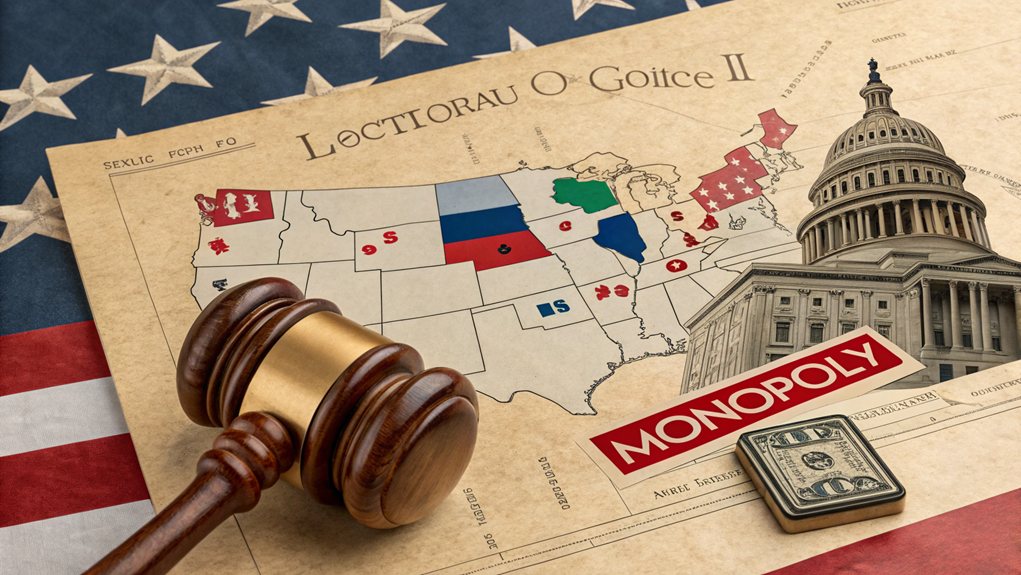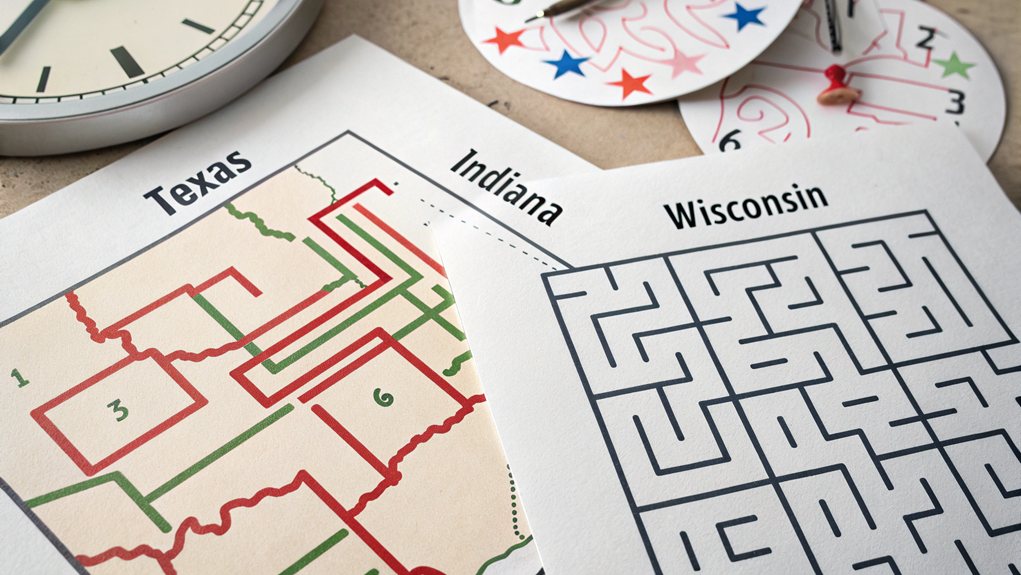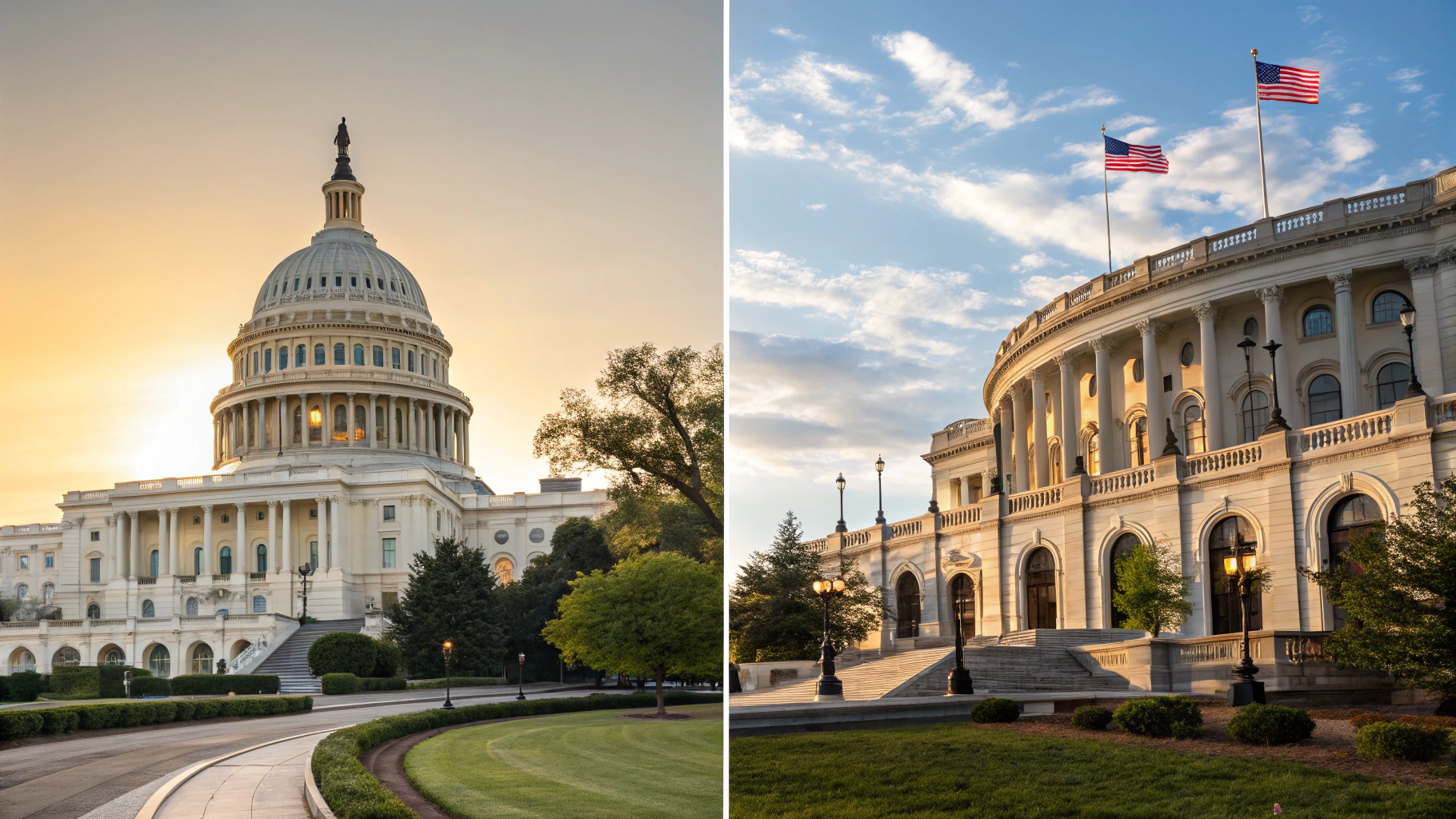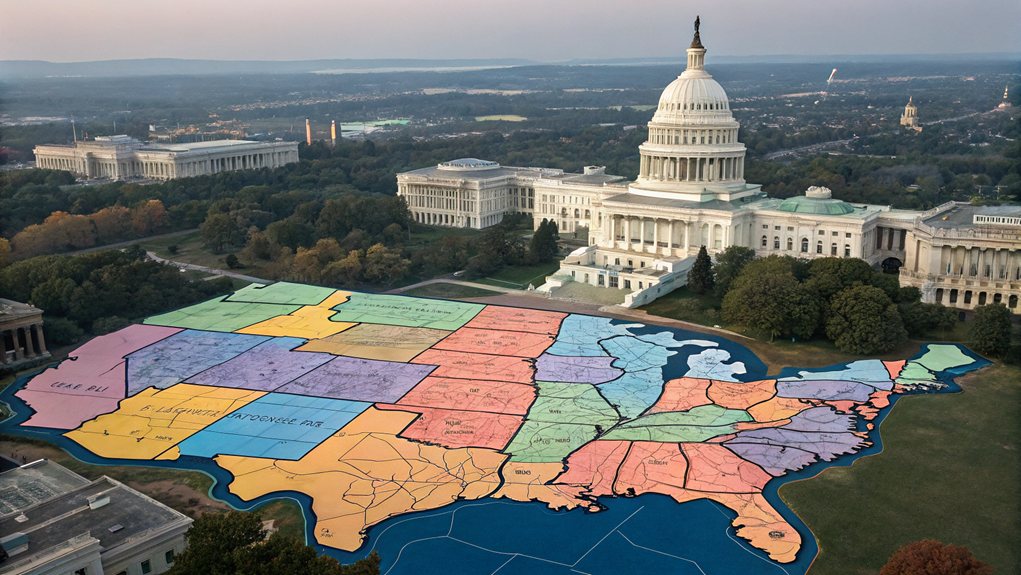Gerrymandering is basically political sleight of hand. By redrawing district lines, one party gets a hefty unfair advantage. It muddy's the waters of who gets represented and who doesn't. Think of it like creating a cheat sheet for an exam—only the ones who know the trick can actually succeed. It stifles genuine voter influence and turns elections into a less thrilling game of one-sided chess. There's a lot more to unpack about its impact on democracy.

Gerrymandering: it's a fancy word for a not-so-fancy practice that's been around since 1812, and it's time to talk about it. This is not just a game of political chess; it's a manipulative art form where electoral district lines are redrawn to favor one party over another. Think of it as a political magic trick—now you see fair representation, now you don't. The term itself comes from Massachusetts Governor Elbridge Gerry, who in 1812 crafted a district that looked suspiciously like a salamander. Yes, a salamander.
There are two main flavors of gerrymandering: partisan and racial. Partisan gerrymandering is all about party affiliation, while racial gerrymandering plays a more insidious game, diluting the voting power of certain ethnic groups. The methods to achieve these results? "Cracking" and "packing." Cracking spreads voters of a particular group across multiple districts to weaken their influence, while packing crams them into a single district, making their power less effective. It's like taking candy from a baby, if the baby was a whole demographic with voting rights. This practice undermines the principle of equal voter influence, leading to disproportionate representation in legislative bodies.
And here's the kicker: while gerrymandering is generally legal, it's about as ethical as a used car salesman. The Supreme Court has even ruled that partisan gerrymandering isn't unconstitutional. Go figure. This practice not only gives one party an unfair advantage but also leads to less competitive elections. Studies indicate a correlation between gerrymandering and reduced voter turnout, further distorting voter representation. Both major political parties can engage in gerrymandering, and political polarization runs rampant. The public? Most folks disapprove, but opinions flip-flop depending on party lines.
In a democracy, fairness is supposed to be the name of the game. Yet, gerrymandering shreds that principle, eroding public trust in the electoral system.
Frequently Asked Questions
How Does Gerrymandering Affect Voter Turnout in Elections?
Gerrymandering? Yeah, it messes with voter turnout, big time.
When districts are drawn unfairly, people feel like their votes don't matter. Why bother showing up? It's like playing a game where the rules keep changing.
Sure, some folks in aligned districts might get excited and vote, but overall, gerrymandering creates a less competitive scene.
And guess what? Lower turnout often means less trust in elections. It's a real mess, folks.
What Are the Legal Challenges Against Gerrymandering?
Legal challenges against gerrymandering? Oh, where to start?
Courts have tossed around cases like hot potatoes. Some say it's justiciable, others scream "nonjusticiable!" Thanks, Rucho v. Common Cause, for making it tough for federal courts to step in.
States are trying their own tricks, using state laws and initiatives. But really, it's a circus.
Everyone's confused, and voters? They're left wondering if their votes even count. Classic, right?
Which States Are Most Affected by Gerrymandering?
Gerrymandering is a real mess, and some states are absolute champions at it.
Utah slices Salt Lake County into bits for GOP dominance. Illinois connects random Democratic pockets to keep a 14-3 edge.
Tennessee? Nashville's split among three districts, leaving one lonely seat for the Democrats.
Florida's racial gerrymandering? A disaster for Black voters.
And North Carolina? A court flip-flop means Republicans could snag 10 out of 14 seats.
It's a wild, unfair game.
Can Gerrymandering Be Eliminated Entirely?
Can gerrymandering be eliminated entirely? Not likely.
It's a tangled mess of politics and power. Sure, some states are trying with independent commissions and fancy algorithms, but the game is rigged. Politicians love their safe seats.
It's like trying to catch smoke with your bare hands—impossible. Even if laws change, the system is stubborn. People will always find a way to twist the rules.
How Do Citizens Fight Against Gerrymandering Practices?
Citizens can fight gerrymandering in a few ways.
They can support independent redistricting commissions. These commissions? A game changer. They take the power away from politicians who love manipulating district lines.
People can also rally for federal laws, like the Freedom to Vote Act.
Plus, lawsuits are a popular route. Advocacy groups are using them to challenge unfair maps.
Education is key too. Knowledge is power, right? So, spread the word!









